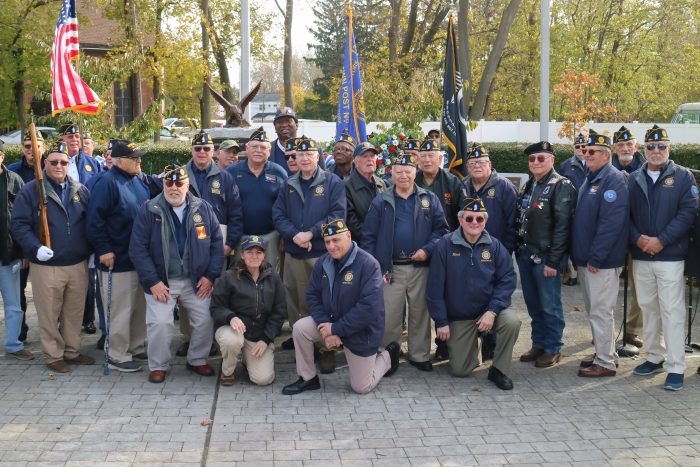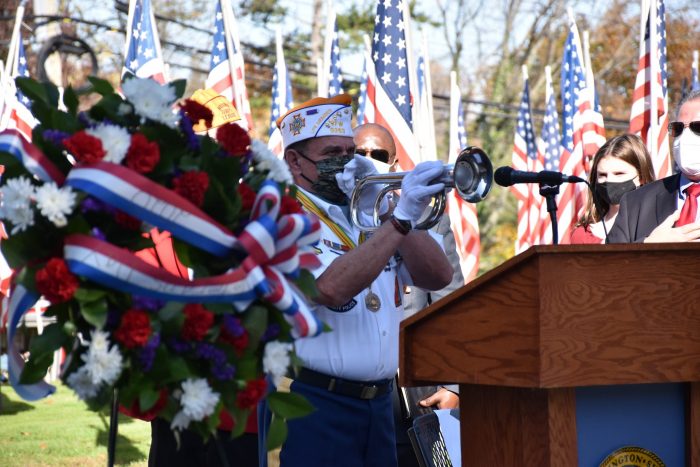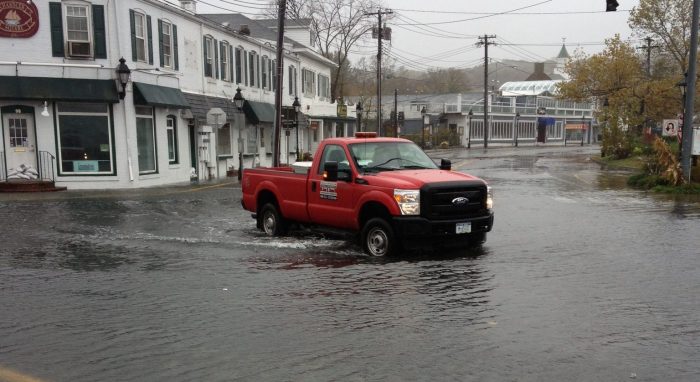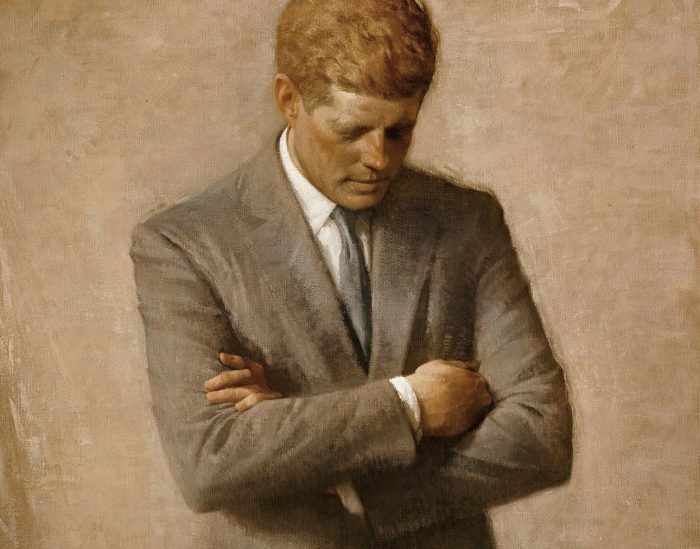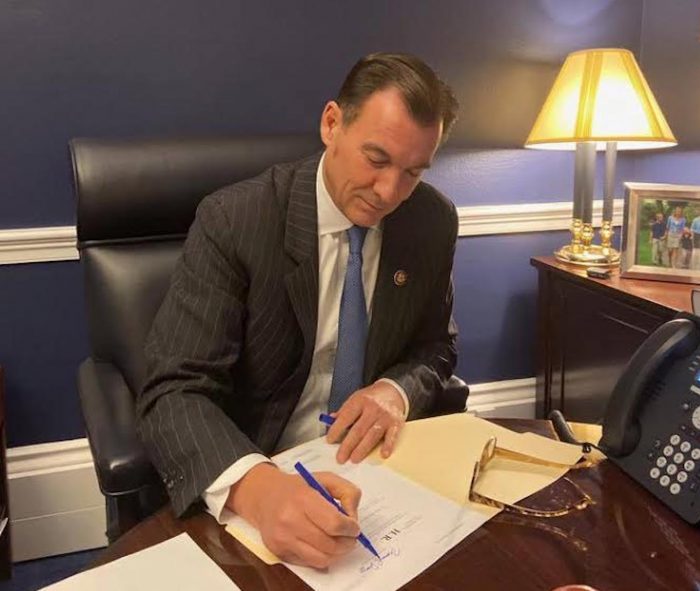He’s back! The John W. Engeman Theater, 250 Main St., Northport presents Frosty from Nov. 21 to Jan. 2, 2022. Join Jenny and Frosty on their chilly adventures as they try to save the town of Chillsville from mean old Ethel Pierpot and her evil machine that will melt all the snow. Jenny calls on her Mom, the mayor, and all of you to help her save her home, get Frosty to the North Pole, and make this holiday season a Winter Wonderland for one and all! All seats are $20. To order, call 631-261-2900 or visit www.engemantheater.com.
Greenlawn American Legion Post to commemorate Veterans Day
The ceremony, which has been conducted annually since 1943 by the Greenlawn Post, will be attended by many veterans, government officials and members of the public. This is the only Veterans Day ceremony in the Town of Huntington to take place on the actual date of Veterans Day.
Veterans Day is intended to honor all our military veterans. There are around 19 million U.S. veterans as of this year, according to data from the Department of Veterans Affairs, representing less than 10% of the total U.S. adult population.
American Legion Greenlawn Post 1244 meets the second Wednesday of every month at St. Joseph Council Knights of Columbus, 24 Boulevard Ave. Greenlawn.
For more information, call 516-458-7881 or e-mail [email protected].
Town of Huntington to hold Veterans Day ceremony Nov. 7
The public is invited to join Town of Huntington officials, the Huntington Veterans Advisory Board, New York State and Suffolk County officials for a Veterans Day Ceremony on Sunday, November 7 at 11 a.m. on Veterans Plaza on the front lawn of Huntington Town Hall, 100 Main Street, Huntington, to honor veterans of the Town of Huntington and across our Nation.
 Veterans Day 2021 commemorates the centennial of the Tomb of the Unknown Soldier. Located at Arlington National Cemetery, the Tomb was initially dedicated by the Army on Armistice Day, November 11, 1921, with the burial of an unknown service member from World War I. Over the past century, additional unknowns have been buried at the Tomb, and the site has become a people’s memorial that inspires reflection on service, valor, sacrifice and mourning.
Veterans Day 2021 commemorates the centennial of the Tomb of the Unknown Soldier. Located at Arlington National Cemetery, the Tomb was initially dedicated by the Army on Armistice Day, November 11, 1921, with the burial of an unknown service member from World War I. Over the past century, additional unknowns have been buried at the Tomb, and the site has become a people’s memorial that inspires reflection on service, valor, sacrifice and mourning.
2021 also marks the 80th anniversary of the bombing on Pearl Harbor on December 7, 1941. Veterans Advisory Board member Mortimer Roberts, a World War II veteran, will lead the Pledge of Allegiance. The World War II Memorial on Veterans Plaza now displays 365 new names added at a special ceremony on October 3, 2021 after a years-long outreach effort to properly recognize all Huntington residents who served in World War II. The names on the memorial now total 6,365.
The ceremony will feature patriotic music and take place on Veterans Plaza amid the American flag display known as the “Field of Honor,” as well as a 30-foot American flag displayed between fire trucks from the Huntington Fire Department and Huntington Manor Fire Department.
Refreshments donated by Buttercooky Bakery and Dunkin Donuts will be served after the ceremony. South Huntington Cub Scout Pack 406 volunteers will be assisting with program distribution.
The Kiwanis Club of Huntington is sponsoring a “Field of Honor” of American flags on display at Huntington Town Hall. 3’x5’ American flags are mounted on 8’ poles surrounding Veterans Plaza on the front lawn of Huntington Town Hall. Each flag has its own custom-printed gold ribbon personalized and dedicated to each veteran honoree. Flags can be purchased at BuyAFlag.org for $35. Flags were assembled in early September 2021 and will be taken down in December 2021. Net proceeds benefit veterans’ and children’s causes in Huntington.
Event:
DATE: Sunday, November 7, 2021
TIME: 11:00 a.m.
PLACE: Veterans Plaza, Huntington Town Hall, 100 Main Street, Huntington
(Front lawn of Town Hall, park in lot and walk through building)
For information about the Veterans Day Ceremony, please call 631-351-3012 or [email protected]
Editorial: Congrats and concerns
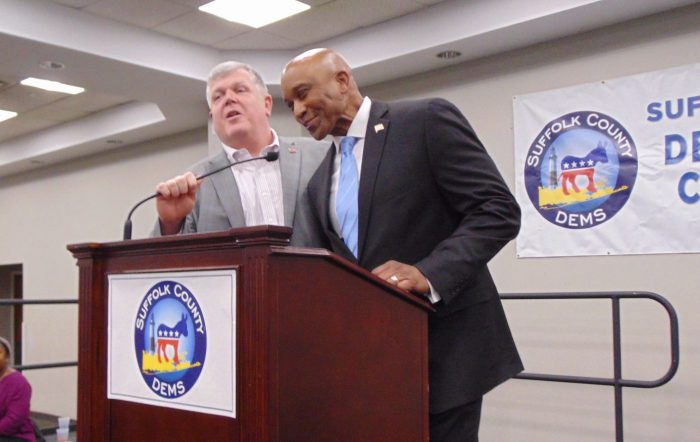
Tuesday was a busy night where candidates across Long Island came together to wait for the 2021 election results.
TBR News Media spent the last month interviewing local officials and their opponents on the ballots, listening and reporting on what they can bring to the table if reelected or elected.
We congratulate the winners of this year’s races, and we are looking forward to working alongside them.
But there is one thing that concerned us as our reporters waited to hear the announcements of both parties late Tuesday night.
Several candidates did not actively campaign this time around, including for example William Amato who ran on the Republican ticket against Errol Toulon Jr. (D) for his seat as the Suffolk County sheriff.
Toulon, who has been county sheriff since 2017, was declared winner with 141,931 votes (54.30%). Amato somehow came close with 119,357 (45.67%).
Interesting for someone who never showed his face at any debate or public outing.
It seems as though voters just went down the row for whatever party they chose. Did anyone take the time out to research which candidate would actually be there for their constituents?
We know that this speaks more of what’s going on in the nation than about the candidates themselves. We understand the political divide and we don’t blame anyone for their beliefs.
But it’s disappointing to think that someone who had no intention of actively being there throughout the campaign could have won such an important position.
Would Amato have been ready to serve if he had won those extra few thousand votes?
We encourage voters to do their part — submitting a ballot is just part of it. Read your local news, listen to debates and educate yourselves on what is going on in your community. Instead of voting for someone who may not actually be qualified, it’s important to understand who’s behind the name and what they can bring to the table.
Remember, if you don’t like your choices in a race, you don’t have to vote for anyone in that column on your ballot. Send a message to local political committees that asks for strong candidates who are ready to serve, instead of rubber stamping someone who just happens to belong to the same party as you.
Elected officials have difficult work to do, and if someone isn’t showing up when it comes time to campaign, that’s not a good sign.
Book Revue employee ready to start next chapter
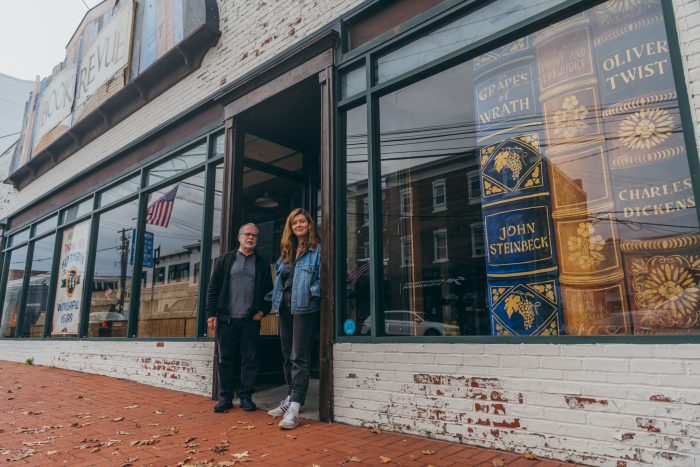
A couple of months after the Book Revue in Huntington village closed its doors for the last time, a former store manager is ready to start a new chapter.

Mallory Braun, of Stony Brook, launched a Kickstarter campaign Nov. 1 to raise funds for a new bookstore in the village in the spirit of Book Revue. Her goal is to raise $250,000 in 45 days on the crowdfunding platform, and she plans to call the business The Next Chapter.
Opening her own business is something that the 28-year-old started thinking about seriously after the Book Revue’s owner, Richard Klein, announced the store was closing this summer.
“It was never something that was on the front burner, but it’s been something that I have had interest in for quite some time,” she said.
Braun said she enjoyed working at the Book Revue and learned a lot when she was employed there. For less than a year she was a bookseller, before going on to be manager, a position she held for more than five years. After a while, Braun said she specialized in used and rare books
She said the plan is to open a store within walking distance of the former Book Revue storefront. Right now she has a store in mind and if her fundraising attempts are successful, she believes she’ll have the funds necessary to open the store in that location. If not, she has two other locations she has considered as a backup.
Klein has been helping her through the process.
“He’s advising me on all business matters,” Braun said. “He’s using his connections from 44 years in the business to help me, and he’s generally being there in a support role.”
The Book Revue, like many businesses in the state, had to close temporarily during the height of the pandemic. It was closed to customers for about three months, but the business tried to be innovative, she said, in order to survive.
“We still sold books every day that we were shut down,” Braun said. “We were selling books on Instagram, on social media, and we were selling books by cracking the door open.”
She added that customers would call and pay by credit card and then would pick up orders curbside.
“You have to be flexible, and you have to be able to change with the times,” Braun said. “And that was what I was thinking then and that’s what I’m thinking now.”
Right now, she is juggling a few jobs. In addition to preparing to open a new business, she babysits for a family in Roslyn and also works for an online business called J & J Lubrano Music Antiquarians, a rare book online business in Syosset.
Through the years Braun, who holds degrees in journalism and Italian studies, has learned about the importance of juggling responsibilities, which she says require discipline and good time management.
“I have to be pretty disciplined, but I’m lucky because I have a lot of people who are really looking out for me and are willing to be flexible,” she said.
Braun said she learned a lot from Klein and her experience has taught her “to find people whose opinions you trust and also to keep your own counsel.”
Klein said he told Braun that opening a business is something one has to really want, and he feels she does, adding he wouldn’t be providing moral support if he didn’t think so. He said it’s important for a person to have tenacity and determination when opening a business.
“You don’t let anything stop you, and you don’t let obstacles bother you,” he said. “You just keep going. And you will face all kinds of difficulties and defeats along the way, but if you just keep getting up and keep working at it, that’s more than half the battle. First, you decide to act, and then the rest is tenacity.”
Klein said Braun is energetic, smart and determined, and “she has a lot of good ideas.”
He also feels The Next Chapter will continue the legacy of Book Revue.
“When she gets this off the ground, I think it’s going to be a place that people are going to enjoy coming to,” Klein said.
Braun said the new bookstore will deal in used, remaindered, rare and collectible books as well as vinyl records. Slowly but surely, she has been acquiring books and records that people have been donating or selling to her.
The number of new books will be limited, at first but her plan is to increase the selection over time.
The budding entrepreneur said she also plans to have workshops, classes, author readings and book signings “to reincarnate the spirit of Book Revue.”
She said she believes the new store will add some character to the village.
“I think people will be pleasantly surprised when they come to a new space and look around,” she said.
To donate, visit www.kickstarter.com/projects/bookrevue/book-revue-the-next-chapter. As of Nov. 3, more than $50,000 has been donated from over 420 backers. If the goal of raising $250,000 is not met in 45 days, all funds will be returned to donors.
Pianist Nadejda Vlaeva heads to Huntington Jewish Center for classical concert
Ridotto, concerts “with a Touch of Theater,” presents the critically acclaimed Bulgarian-American Pianist Nadejda Vlaeva in Recital at the Huntington Jewish Center, 510 Park Ave., Huntington on Sunday, Nov. 14 at 4 p.m. The pianist returns to Ridotto with a program of Chopin, Scriabin, Bortkiewicz, Liszt and more.
“…a sense of elegance, a subtle touch, and fleetness of fingers, all of which Ms. Vlaeva displayed with abandon. She has the fluidity and ease to conquer all the difficulties the composer presents.” — Concertonet review of CARNEGIE ZANKEL HALL recital.
“Without doubt, Nadejda Vlaeva is one of those people of extraordinary ability who we hope for but rarely see.” — Arnold Steinhardt, Violinist Guarneri String Quartet
“Bulgarian pianist Nadejda Vlaeva’s burnishing account bristled with excitement”
“The rapt audience broke its breathless silence with warm applause ” — Leonard Turnevicius, Hamilton Spectator, Canada
Tickets are $12 (student), $20 (members), $25 (seniors), $30 (general admission). The hall is handicapped accessible. For reservations, call 631-385-0373, or [email protected]
Ridotto is a non-profit, Long Island based concert organization presenting Concerts “with a touch of theatre” since 1992. For more information, visit www.ridotto.org
CSHL’s David McCandlish uses math to tackle cancer
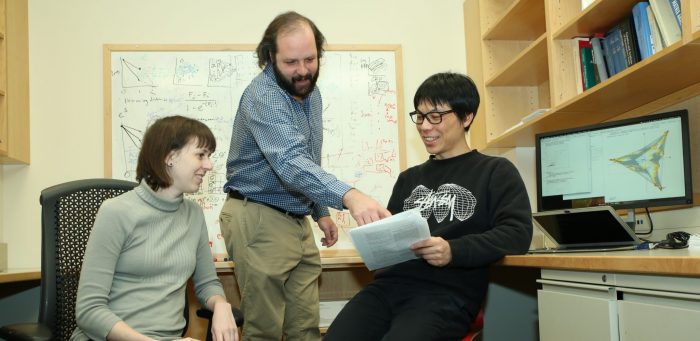
By Daniel Dunaief
If cancer were simple, scientists would have solved the riddle and moved on to other challenges.
Often, each type of the disease involves a combination of changes that, taken together, not only lead to the progression of cancer, but also to the potential resistance to specific types of treatment.
Using math, David McCandlish, Assistant Professor at Cold Spring Harbor Laboratory, is studying how the combination of various disruptions to the genome contribute to the development of cancer.
McCandlish recently published a study with colleagues at Cold Spring Harbor Laboratory in the journal Proceedings of the National Academy of Sciences.

The research didn’t explore any single type of cancer, but, rather applied the method looking for patterns across a range of types of cancers. The notion of understanding the way these genetic alterations affect cancer is a “key motivating idea behind this work,” McCandlish said.
So far, the method has identified several candidates that need further work to confirm.
“Cancer would be a lot easier to treat if it was just one gene,” said Justin Kinney, Associate Professor at CSHL and a collaborator on the work. “It’s the combination that makes it so hard to understand.”
Ultimately, this kind of research could lead researchers and, eventually, health care professionals, to search for genetic biomarkers that indicate the likely effect of the cancer on the body. This disease playbook could help doctors anticipate and head off the next moves with various types of treatments.
“This could potentially lead to a more fundamental understanding of what makes cancer progress and that understanding would very likely open up new possibilities in cancer treatments,” Kinney said.
To be sure, at this point, the approach thus far informs basic research, which, in future years, could lead to clinical improvements.
“We are working on this method, which is very general and applicable to many different types of data,” McCandlish said. “Applications to making decisions about patients are really down the road.”
McCandlish described how he is trying to map out the space that cancer evolves in by understanding the shape of that space and integrating that with other information, such as drug susceptibility or survival time.
“We are trying to ask: how do these variables behave in different regions of this space of possibilities?” he said.
McCandlish is making this approach available to scientists in a range of fields, from those scientists interpreting and understanding the effects of mutations on the development of cancer to those researchers pursuing a more basic appreciation of how such changes affect the development and functioning of proteins.
“This is accessible to a wide array of biologists who are interested in genetics and, specifically in genetic interactions,” said McCandlish.
The main advance in this research is to take a framework called maximum entropy estimation and improve its flexibility by using math to capture more of the underlying biological principals at work. Maximum entropy estimation is based on the idea of inferring the most uniform distribution of behaviors or outcomes with the least information that’s compatible with specific aspects of experimental observations.
Using this philosophy, scientists can derive familiar probability distributions like the bell curve and the exponential distribution. By relaxing these estimates, scientists can infer more complicated shapes.
This more subtle approach enhances the predictive value, which captures the distributions of data better, McCandlish explained. “We’re trying to capture and model cancer progression in a new and more expressive way that we hope will be able to tell us more about the underlying biology.”
The idea for this paper started when McCandlish, Kinney and Jason Sheltzer, a former fellow at Cold Spring Harbor Laboratory and a current Assistant Professor of Surgery at Yale School of Medicine, discussed the possibilities after McCandlish attended a talk by Wei-Chia Chen, a post doctoral researcher in Kinney’s lab.
Chen will continue to pursue questions related to this effort when he starts a faculty position in the physics department at National Chung Cheng University in Taiwan this spring.
Chen will use artificial intelligence to handle higher dimensional data sets, which will allow him “to implement effective approximations” of the effect of specific combinations of genetic alterations, Kinney said.
Kinney believes teamwork made this new approach, which the high-impact, high-profile journal PNAS published, possible.
“This problem was an absolutely collaborative work that none of us individually could have done,” Kinney said. He described the work as having a “new exploratory impact” that provides a way of looking at the combination of genomic changes that “we haven’t had before.”
Working at Cold Spring Harbor Laboratory, which McCandlish has done since 2017, enables collaborations across different disciplines.
“We have this quantitative biology group, we also have people working on neuroscience, cancer, and plant biology,” McCandlish added.
McCandlish is also currently also working with Professor Zachary Lippman and his graduate student Lyndsey Aguirre to understand how multiple mutations interact to influence how the fruit on tomato plants develop.
“The idea is that there are these huge spaces of genetic possibilities where you can combine different mutations in different ways,” McCandlish explained. “We want to find those key places in that space where there’s a tipping point or a fork in the road. We want to be able to identify those places to follow up or to ask what’s special about this set of mutations that makes it such a critical decision point.”
A native of Highland Park, New Jersey, McCandlish was interested in math and science during his formative years.
As for the work, McCandlish appreciates how it developed from the way these collative researchers interacted.
“This would never have happened if we weren’t going to each other’s talks,” he said.
D. None of the Above: Nine years later, New York isn’t ready for another Sandy
By Daniel Dunaief

Nine years ago, Superstorm Sandy came roaring through the area, causing flooding, knocking out power and disrupting work and school.
All these years later, New York is not prepared for other significant storms, despite studies suggesting that future, slow moving hurricanes with heavy rain could overwhelm infrastructure in and around Long Island.
“While we have dithered, New Orleans, Houston and other U.S. cities have gained federal support for regional protection strategies — which will be funded with our tax dollars,” according to an information packet created by the New York New Jersey Storm Surge Working Group. “We can’t waste another decade pursuing local responses to regional threats.”
In a ninth anniversary boat tour designed to address the challenges from a future Sandy or even a Hurricane Ida, the working group, which is chaired by School of Marine and Atmospheric Sciences Distinguished Professor at Stony Brook University Malcolm Bowman, outlined four messages.
First, the group suggested that coastal flooding presented a significant danger. Storm surge, sea level rise and storm water from extreme rain present an “existential threat” to the area.
Second, the group concluded that coastal flooding is a regional challenge that requires a regional solution. These scientists urge the two middle Atlantic states to consider creating a layered defense system, which they argue would be cost effective to protect property and the environment.
Third, and perhaps most damaging, the group concludes that the area is as vulnerable now as it was nine years ago in the days before Hurricane Sandy arrived. The group wrote that “no regional costal resilience plan” is in place to protect over 1,000 miles of the New York and New Jersey metropolitan coastline.
Fourth, the changing political climate presents an opportunity to do something. The group highlighted how a new governor of New York, the start of a new term or releected governor in New Jersey, a new mayor of New York City and the restarting of the $20 million New York and New Jersey Harbor and Tributaries Focus Area Feasibility Study, or HATS, presents a “once in a lifetime opportunity to act now to address the existential threat of costal flooding with a regional coastline resilience system that meets our social justice, environmental justice, quality of life and economic development goals.”
Bowman urged New York and New Jersey residents to consider the progress other states and countries have made.
“Houston is going ahead,” Bowman said, even while New York hasn’t taken any significant steps.
Bowman said part of the challenge in creating any change that protects the area comes from the lack of any enduring focus on a vulnerability that isn’t evident to residents on a daily basis.
“People have short memories,” Bowman said. “It’s not on their minds” even if they endured the disruption and devastation from storms like Sandy and Ida.
Necessity and the lack of deep pockets in other countries is the mother of invention.
“A lot of countries can’t afford” to rebuild the way New York and New Jersey did after Hurricane Sandy,” Bowman said. “They are forced to be more careful.”
Bowman said any major project to protect the area needs a hero who can tackle the details, navigate through the politics and execute on viable ideas.
The late Daniel Patrick Moynihan had “that kind of charisma,” Bowman said. “We need somebody who everybody sees as the hero. I don’t see that person” at this point.
For New York and New Jersey, the longer time passes without any protective measures, “the more the danger will increase,” Bowman cautioned.
Between You and Me: Connecting the dots from shots in Dallas, Vietnam and into our arms
By Leah S. Dunaief

Elections have ended and the newly elected and reelected officials are going to have to cope with a disturbing fact: people don’t trust government. This change in attitude has been a long time coming. It didn’t just happen suddenly. I know, I have lived through the change.
Trust started to fall apart with the Vietnam War. Maybe it even started earlier than that, with the assassination of President Kennedy. I was in my early 20s then, just graduated from college, newly married, in my dream job, looking forward to an unbounded future filled with joyful events. The nation was at peace, there was a young and vigorous president talking about making life better with civil rights legislation, women were speaking up for themselves, it was a hopeful time.
Friday afternoon, a sunny day, business lunch in a midtown Manhattan restaurant with a television on over the bar in the distance, a movie playing about a president who had been shot in the head. But wait. Wait! It wasn’t a movie, it was a news broadcast from Dallas interrupting the regular programming, it was our president, everyone standing up, crying, paying their checks, rushing back to their offices, trying to deal with the unthinkable.
How could this happen? How could Secret Service let this happen? In our country! A president, the President of the United States, could not be protected! Our bubble of safety was bursting, slowly, excruciatingly. Lee Harvey Oswald shot on television while under arrest. In what could you trust?
Who killed Kennedy? All kinds of conspiracy theories, the Warren Commission, an end but never a certainty. Was the government lying to us? Was there a cover-up?
Next came the Vietnam War. First only “advisors,” then military, then body counts, always more Viet Cong than Americans lay on the battlefields. Promises of progress and victory by the government, as casualties and numbers drafted rose. This even as Secretary of Defense Robert McNamara privately expressed doubts of victory as early as 1966. But President Johnson was afraid of losing the 1968 election should the United States withdraw. Instead we lost thousands of young men, all of which eventually was revealed to the public. Protests were the order of the day, and more violence, including the assassination of Martin Luther King, Jr., Robert Kennedy and the chaos at the 1968 Democratic Convention in Chicago. What’s happening to the nation’s authority figures?
We rolled right into Watergate and Nixon’s resignation. Our President accused of being a liar and a crook. What’s left to believe in? President Jimmy Carter held hostage by the Iranians, the Iran-Contra deception of Ronald Reagan’s second term, Bill Clinton making Monica Lewinsky a household name around the globe. Then the Weapons of Mass Destruction lies by the senior administration officials manipulating us into the Iraq and Afghanistan Wars. Whom to believe?
Whom to trust? Each lie, each governmental deception blew away more trust, leading to the climax: the disbelief in the COVID-19 vaccine. Even when ex-President Donald Trump urged his audience to get vaccinated on Aug. 21, in Cullman, Alabama, one of the areas struggling to cope with COVID cases and hospitalization, he was booed. “But I recommend take the vaccines,” Trump said. “I did it. It’s good. Take the vaccines.” After that experience, he hasn’t again mentioned vaccination at a rally. But the reaction wasn’t partisan. They were, like Trump, all Republicans who had come to hear him, It was symptomatic of the larger distrust in government.
I was in my early teens when I received the polio vaccination. Polio was a dreaded disease by parents the world over, more so as I remember, than COVID-19. Like today, we were discouraged from assembling in groups or joining crowds. The virus attacks the brain and spinal cord, leaving paralysis and even causing death. When Jonas Salk and his colleagues created the vaccine, we all lined up to take the shot. It was the Eisenhower years. We believed our president.
Those vaccines have eliminated polio from most of the world. That’s what approved vaccinations can do.
Suozzi has big decision to make
During a virtual press conference Nov. 4, U.S. Rep. Tom Suozzi (D-NY3) said he has a lot to think about before the end of the month.
Suozzi said he has been seriously considering running for New York governor in 2022, but he said he will not make a decision until the end of November.
“I’d love to be the governor of New York State, and I think I’ve got a great record of accomplishment,” he said. “I think I’d be great at the job. I have a vision for the state of New York. I know what needs to be done.”
Over the next few weeks he will meet with political consultants to determine if he has a good chance of winning. He added he believes he could win a general election but he wasn’t sure about a Democratic primary.
To date, New York Gov. Kathy Hochul, state Attorney General Leticia James and New York City Public Advocate Jumaane Williams have stated their intentions to run in the Democratic primary in June of 2022.



